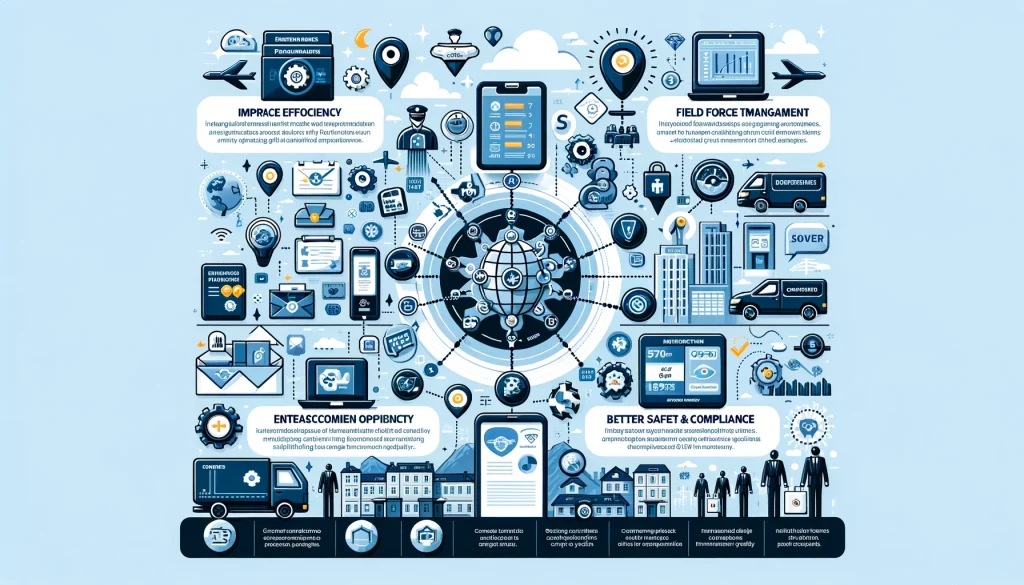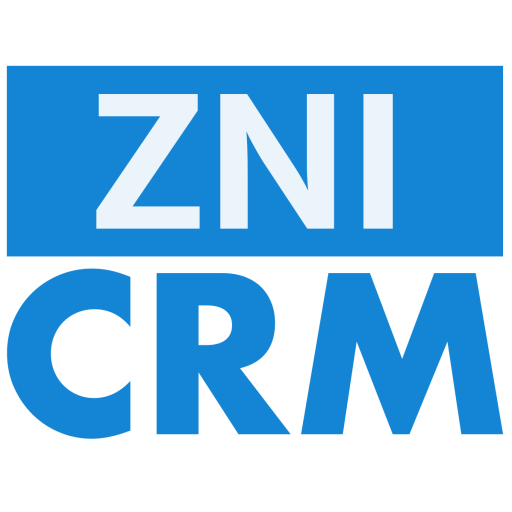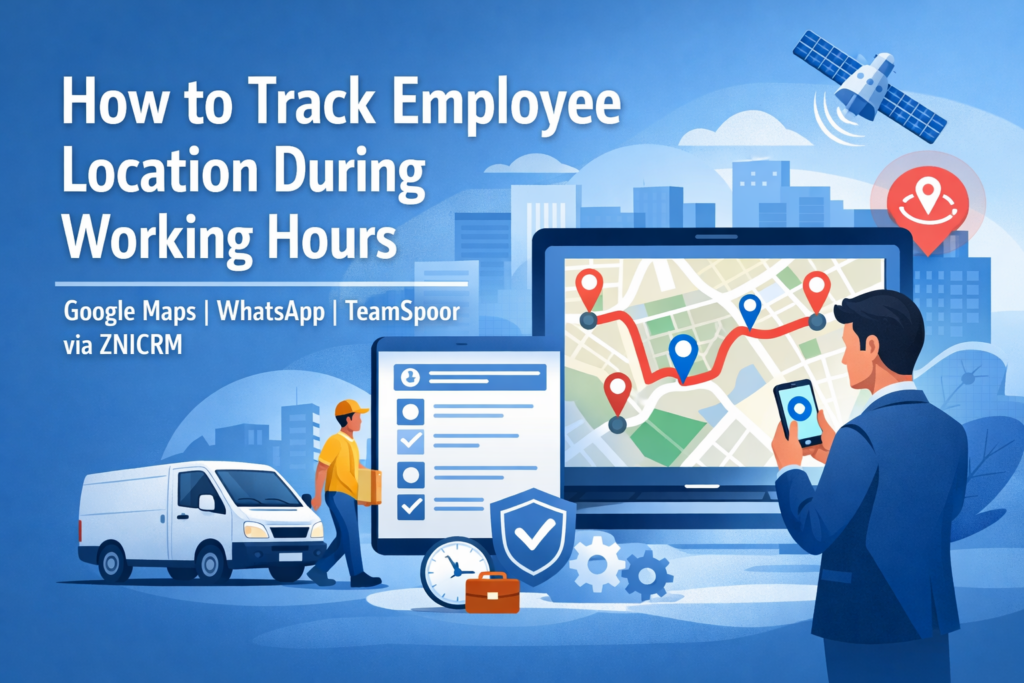
Maximizing Efficiency and Savings: How Travel Agencies Can Benefit from Field Force Management and GPS Tracking Solutions Integrated with Travel CRM
In the fast-paced world of travel and tourism, the landscape of travel management is continuously evolving, driven by technological advancements that aim to streamline operations and enhance the customer experience. The adoption of technology in this sector has become not just advantageous but essential for staying competitive and meeting the ever-increasing demands of travelers. Among the plethora of technological tools available, field force management and GPS tracking solutions stand out for their pivotal role in optimizing the operations of travel agencies. These solutions offer unparalleled insights into fleet operations, driver behavior, and real-time vehicle tracking, enabling agencies to make informed decisions, improve safety, and ensure the satisfaction of their clients. Furthermore, the integration of these solutions with Travel Customer Relationship Management (CRM) systems marks a significant leap towards operational excellence. By combining detailed customer data with fleet and driver analytics, travel agencies can achieve a level of service personalization and efficiency previously unattainable. This article aims to delve into the myriad benefits and cost savings that travel agencies can realize through the adoption and integration of field force management and GPS tracking solutions with their Travel CRM systems, highlighting the transformative potential of these technologies in redefining travel management practices.
The Importance of Fleet and Driver Management in Travel Agencies
Efficient fleet and driver management are critical for travel agencies aiming to provide top-notch services while maintaining profitability. Without proper management systems in place, agencies face a multitude of challenges that can significantly hinder their operations and growth. Inefficiencies in scheduling and dispatching, for instance, not only lead to delays and decreased customer satisfaction but also increase operational costs through wasted fuel and unoptimized routes. Moreover, the lack of real-time tracking and performance monitoring raises safety concerns, leaving agencies vulnerable to incidents that could tarnish their reputation and incur substantial financial losses.
In the context of these challenges, Travel Customer Relationship Management (CRM) systems play a pivotal role by centralizing customer information, enabling travel agencies to tailor their services to individual needs and preferences. However, the true potential of Travel CRM extends beyond just managing customer interactions. When integrated with field force management and GPS tracking solutions, Travel CRM becomes the backbone of a comprehensive operational framework. This integration allows for a seamless flow of information between different facets of the agency’s operations, from customer bookings to fleet management and driver assignments.
Such a unified system enhances operational efficiency by automating scheduling and dispatching, optimizing routes based on real-time traffic data, and enabling proactive maintenance of vehicles. It also empowers travel agencies to elevate their service quality, offering personalized travel experiences based on the detailed customer insights stored in the CRM. Furthermore, the enhanced safety protocols and reduced response times to any incidents on the road, enabled by real-time GPS tracking, not only protect the agency’s assets and personnel but also build trust and reliability among customers.
Therefore, the integration of field force management and GPS tracking solutions with Travel CRM is not just an operational necessity but a strategic investment for travel agencies. It addresses the critical challenges of fleet and driver management, paving the way for improved service delivery, customer satisfaction, and ultimately, greater profitability.
Overview of Field Force Management Solutions
Field force management solutions are advanced software systems designed to optimize the coordination and operation of teams working outside the traditional office environment, particularly those involved in on-the-ground services like deliveries, maintenance, or, in the context of travel agencies, fleet management and customer transportation. For travel agencies, which depend heavily on the efficiency and reliability of their mobile workforce — including drivers, tour guides, and on-field customer service representatives — these solutions are instrumental in ensuring that operations run smoothly and efficiently.
The core features of field force management solutions include scheduling, dispatching, real-time tracking, and performance analytics, each playing a vital role in enhancing operational efficiency. Scheduling tools allow for the automated assignment of drivers to vehicles and routes based on various criteria such as availability, skill set, and geographical location, ensuring that the right person is in the right place at the right time. Dispatching capabilities enable quick and efficient allocation of tasks to drivers, with adjustments being made in real-time to accommodate last-minute changes or emergencies.
Real-time tracking is perhaps one of the most crucial features, offering travel agencies visibility into the exact location of their fleet vehicles at any given moment. This not only aids in ensuring safety and security but also allows for dynamic route optimization based on current traffic conditions, leading to reduced fuel consumption and improved customer satisfaction through timely arrivals. Lastly, performance analytics provide valuable insights into the behavior and efficiency of the mobile workforce, highlighting areas for improvement and recognizing outstanding performance.
The impact of these features on managing a mobile workforce is profound. By automating routine tasks, optimizing routes, and providing actionable insights into workforce performance, field force management solutions enable travel agencies to significantly reduce operational costs, enhance customer satisfaction, and ensure the safety and well-being of both employees and customers. In a sector where timing, reliability, and efficiency are paramount, these solutions offer a clear pathway to achieving operational excellence.
Advantages of Driver GPS Tracking Solutions
Driver GPS tracking solutions are sophisticated technologies that utilize the Global Positioning System to monitor the real-time location and movement of vehicles. This capability is paramount for travel agencies, as it empowers them with precise oversight over their fleet, enhancing both operational efficiency and safety. The adoption of GPS tracking solutions brings several key advantages to the management of drivers and vehicles, crucial for optimizing service delivery in the competitive travel industry.
Real-time location tracking stands at the core of GPS solutions, enabling travel agencies to monitor their fleet’s exact whereabouts at any moment. This feature is instrumental in ensuring that vehicles are on the correct path, helping to address any deviations immediately. It also facilitates better communication with clients, as agencies can provide accurate updates on vehicle arrivals.
Route optimization is another significant benefit, as GPS tracking solutions can analyze various factors such as traffic conditions, road closures, and distances to recommend the most efficient routes. This not only reduces fuel consumption and wear and tear on vehicles but also ensures timely service to customers, enhancing overall satisfaction.
Geofencing allows agencies to set up virtual boundaries for their vehicles. Alerts can be triggered when a vehicle enters or exits designated areas, a feature that’s particularly useful for ensuring drivers stick to prescribed routes and destinations. This capability can also enhance security by identifying unauthorized use of vehicles or deviations from expected paths.
From a safety and compliance perspective, GPS tracking solutions are invaluable. They contribute to safer driving habits by monitoring speed, braking, and acceleration patterns, encouraging drivers to adhere to safe driving practices. In terms of compliance, these systems help ensure that drivers adhere to regulatory requirements, such as hours of service, by providing accurate, tamper-proof records of their activities.
In summary, driver GPS tracking solutions offer a suite of features that not only improve operational efficiency and customer satisfaction but also bolster safety and compliance. For travel agencies, these benefits translate into a stronger competitive edge and a foundation for sustainable growth.
Integrating Field Force and GPS Tracking with Travel CRM
Integrating field force management and GPS tracking solutions with Travel Customer Relationship Management (CRM) systems marks a transformative step for travel agencies, creating a unified platform that revolutionizes how operations, customer interactions, and analytics are managed. This integration facilitates a seamless flow of information between different components of the agency’s ecosystem, significantly enhancing operational visibility and strategic decision-making capabilities.
The synergy between these systems allows for real-time data exchange, ensuring that customer information, vehicle locations, driver schedules, and performance metrics are all accessible within a single interface. For instance, when a customer books a service, the Travel CRM system can automatically communicate the details to the field force management system, which then optimizes scheduling and dispatching based on real-time availability and location data from the GPS tracking system. This level of integration ensures that the right resources are allocated to each customer request efficiently, enhancing service delivery and customer satisfaction.
Furthermore, the consolidated data analytics provided by this integrated platform offer deep insights into customer behavior, fleet performance, and operational efficiency. Travel agencies can leverage this information to identify trends, forecast demand, and make informed decisions regarding fleet expansion, driver training programs, or targeted marketing campaigns, ultimately leading to increased revenue and growth.
Hypothetical Case Study: Sunshine Travel Agency
Sunshine Travel Agency recently integrated their field force management and GPS tracking solutions with their Travel CRM system. Before integration, managing bookings, vehicle dispatches, and customer communications was a fragmented and time-consuming process, often leading to errors and customer dissatisfaction.
After integration, Sunshine Travel Agency experienced a remarkable transformation in their operations:
- Real-time Scheduling and Dispatching: The agency could automatically assign the closest available vehicle to each booking, reducing wait times for customers and improving service ratings.
- Enhanced Customer Service: With access to real-time vehicle tracking, customer service representatives could provide accurate updates to customers about their service status, enhancing transparency and trust.
- Operational Insights: The integrated analytics tools helped Sunshine Travel identify underperforming routes and adjust them for better efficiency, leading to significant fuel savings and reduced operational costs.
- Increased Customer Retention: The personalized service and improved communication facilitated by the integrated system led to higher customer satisfaction and repeat business.
This case study demonstrates the practical benefits of integrating field force management and GPS tracking solutions with Travel CRM systems, showcasing how such a unified approach can streamline operations, enhance customer service, and drive business growth for travel agencies.
Benefits of a Unified Management Solution
The adoption of a unified management solution, integrating field force management and GPS tracking with Travel CRM, offers a suite of benefits that collectively empower travel agencies to achieve new heights of operational excellence and customer satisfaction. This holistic approach not only streamlines operations but also ensures that agencies can offer safe, compliant, and highly personalized services to their clients. Here are the key benefits:
Improved Operational Efficiency: By automating scheduling, dispatching, and route optimization, agencies can significantly reduce manual effort and minimize errors. This leads to a more efficient use of resources, with vehicles and staff being allocated in the most effective manner possible, reducing downtime and increasing the number of services that can be delivered in a given period.
Enhanced Customer Satisfaction: The integration of these systems provides agencies with comprehensive insights into customer preferences and behavior, enabling them to tailor their services to meet individual needs. Real-time tracking and communication features ensure that customers are kept informed about the status of their service, enhancing transparency and trust.
Better Safety and Compliance: GPS tracking allows for the monitoring of driver behavior and vehicle performance, promoting safer driving practices and reducing the likelihood of accidents. Additionally, it ensures compliance with regulatory requirements by providing accurate, real-time data on driver hours and vehicle usage.
Increased Flexibility in Managing Field Operations: The unified platform provides a flexible framework for managing field operations, allowing travel agencies to quickly adapt to changes in demand, address operational challenges in real-time, and capitalize on new opportunities as they arise.
These benefits collectively provide travel agencies with a significant competitive advantage in the industry. The ability to efficiently manage operations while delivering personalized, safe, and compliant services positions agencies as leaders in customer service and innovation. It not only attracts more customers but also fosters loyalty among existing clients, driving long-term success and sustainability in the competitive travel market.
Cost Savings and ROI For Travel Agencies
The integration of field force management and GPS tracking solutions with Travel CRM systems brings forth substantial cost-saving opportunities for travel agencies, directly impacting their bottom line and enhancing the return on investment (ROI). These technologies streamline operations, improve service delivery efficiency, and open avenues for increased bookings, all of which contribute to the financial health and growth potential of an agency.
Reduced Operational Costs: The automation of scheduling and dispatching, coupled with route optimization, significantly lowers fuel consumption and vehicle maintenance costs by ensuring that vehicles take the most efficient routes and are utilized optimally. Additionally, the ability to monitor driver behavior leads to safer driving practices, reducing the likelihood of accidents and the associated insurance premiums.
Improved Efficiency: By minimizing manual tasks and automating various operational aspects, agencies can handle more bookings without a corresponding increase in overheads. The efficiency gains also mean that resources are used more effectively, reducing idle times for vehicles and ensuring that staff are deployed where they’re most needed, further driving down operational costs.
Increased Bookings: The enhanced customer satisfaction resulting from reliable and personalized services encourages repeat business and attracts new customers through positive reviews and word-of-mouth. This increase in bookings contributes directly to revenue growth, improving the overall ROI of the integrated system.
Long-term Financial Benefits: The cumulative effect of these cost savings and efficiency improvements provides travel agencies with a stronger financial foundation. The savings realized can be reinvested into the agency, whether through expanding the fleet, investing in marketing to attract more customers, or enhancing the technology stack for even greater efficiency and service personalization.
In summary, the integration of field force management and GPS tracking solutions with Travel CRM systems not only offers immediate cost savings and efficiency gains but also sets the stage for increased revenue and long-term financial stability. This strategic investment allows travel agencies to reinvest in their operations, driving innovation, growth, and a competitive edge in the travel industry.
Conclusion
The integration of field force management and GPS tracking solutions with Travel CRM systems represents a pivotal advancement for travel agencies, offering a comprehensive approach to streamline operations, enhance customer satisfaction, and ensure safety and compliance. These technologies serve as crucial tools for agencies aiming to navigate the competitive landscape of the travel industry successfully. By leveraging the synergies between these solutions, agencies can significantly improve operational efficiency, reduce costs, and increase bookings, ultimately boosting their bottom line. In an era where technological innovation defines market leaders, travel agencies are encouraged to embrace these integrated solutions as essential components of their strategy to refine service offerings and secure a sustainable, competitive advantage.


